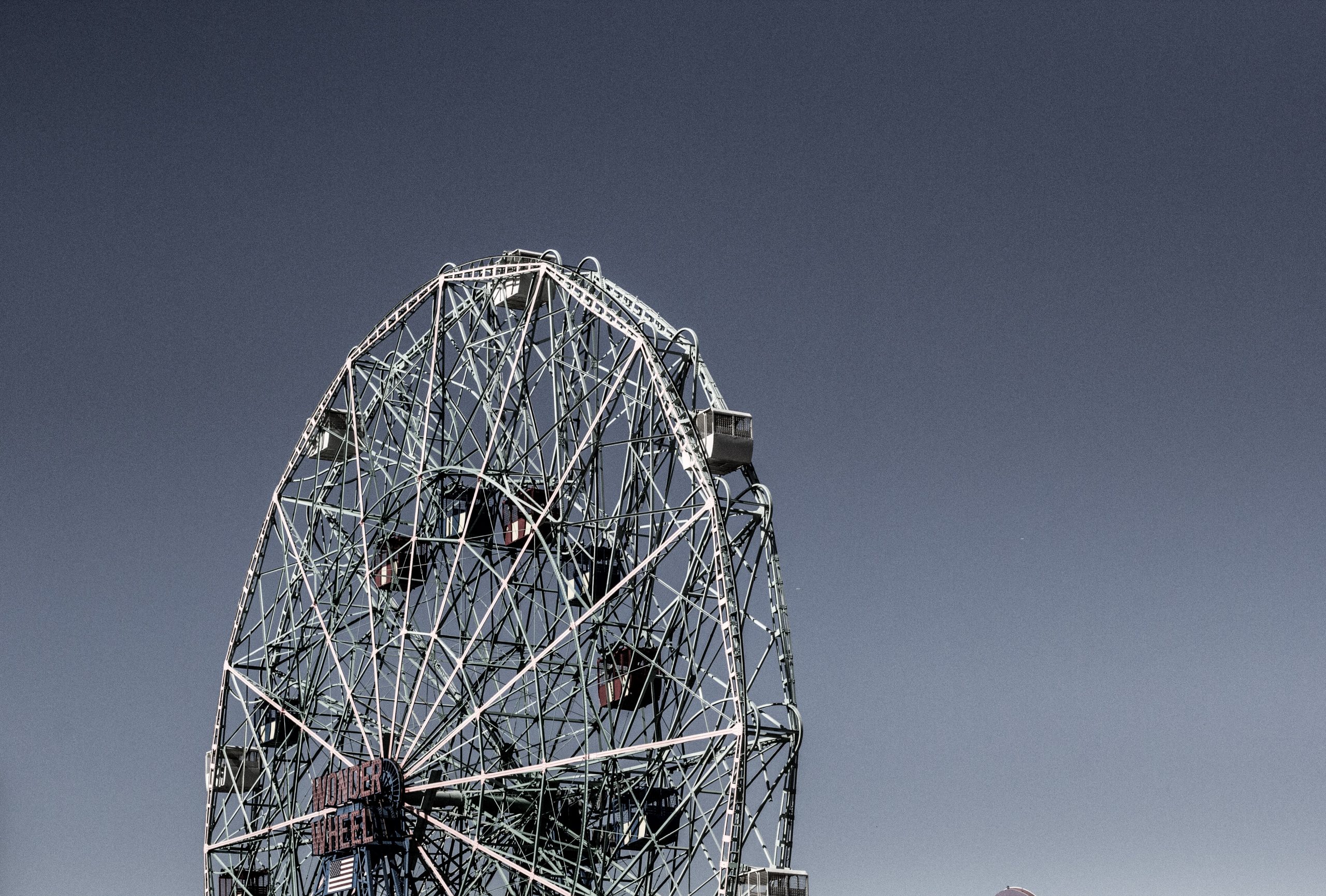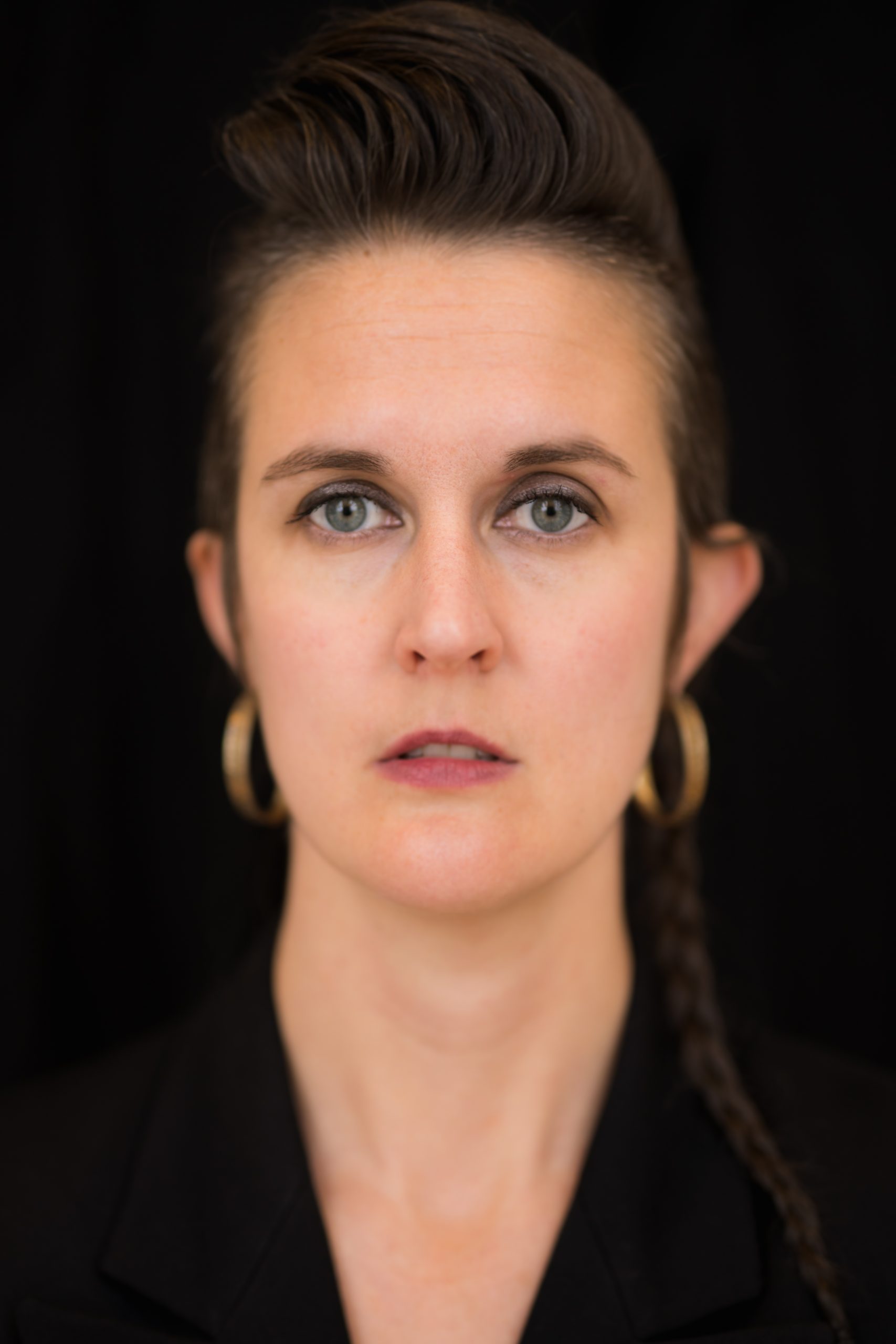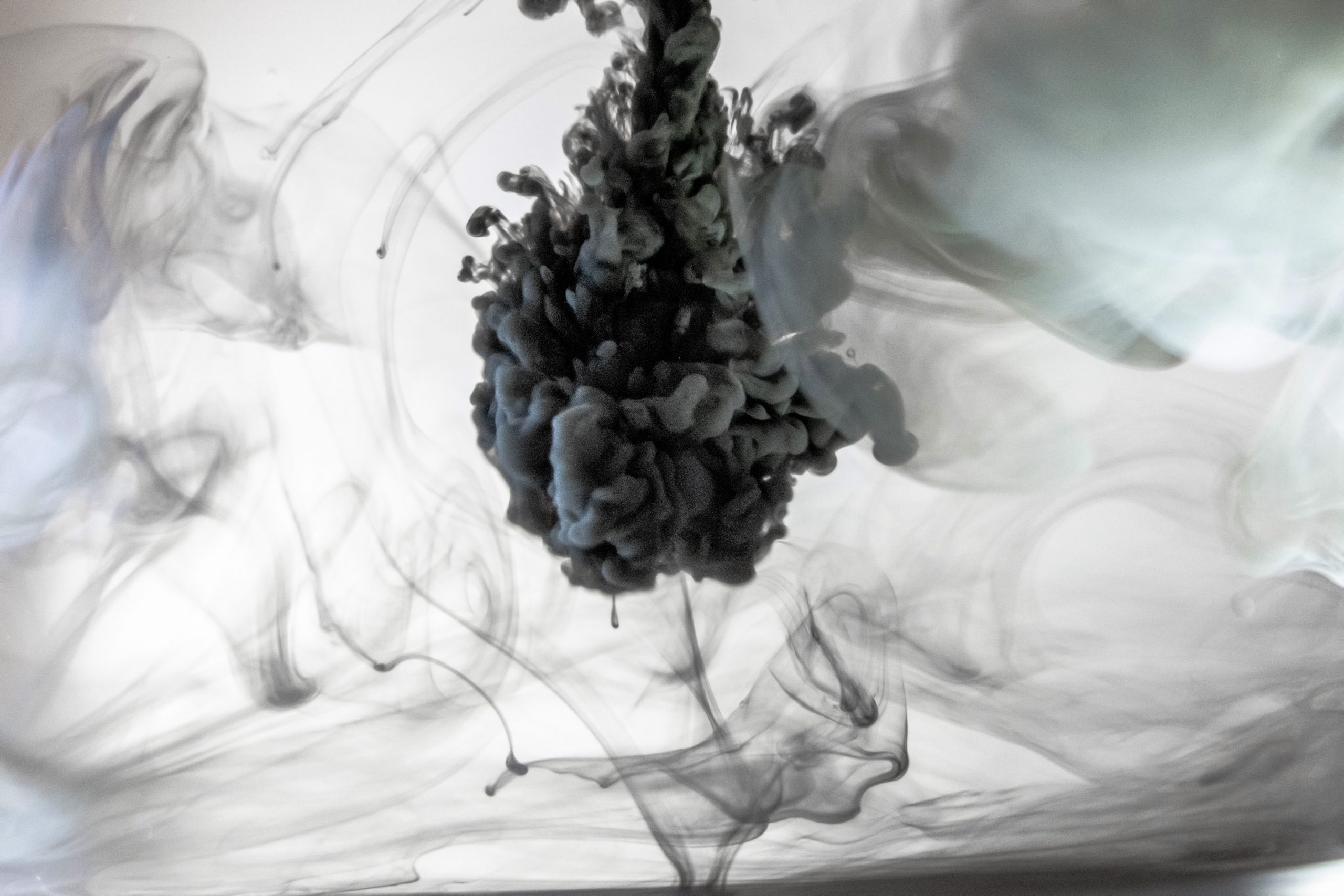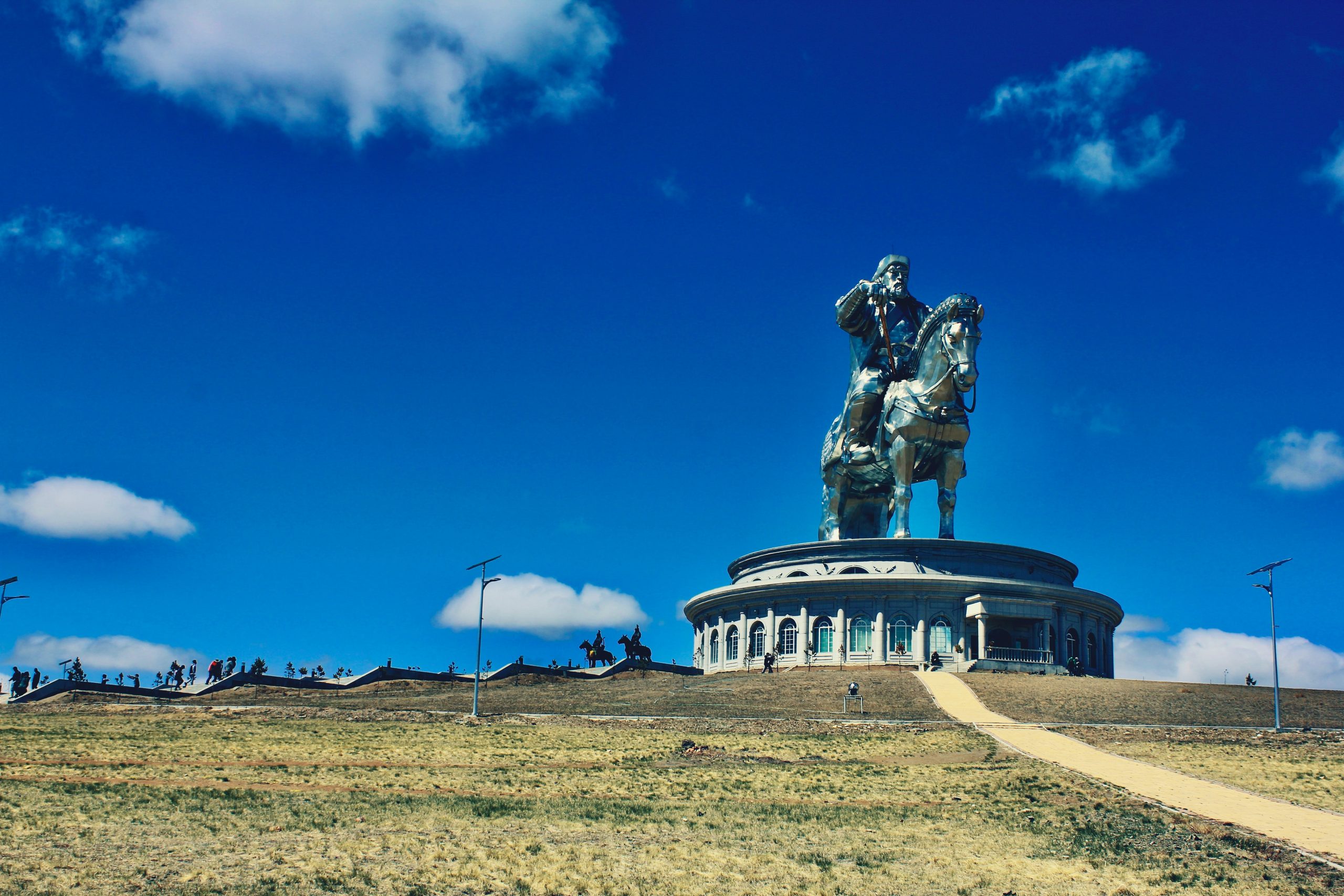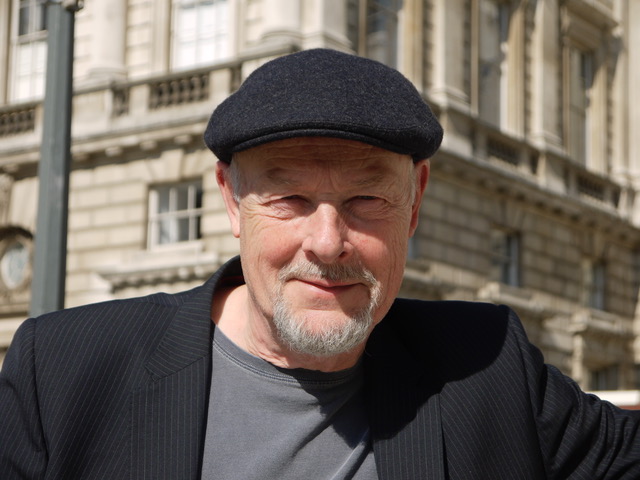The Joy of Living by Alexander Hewett
09:37. A late start. Water on his face, quick brush of his teeth, and he’s escaped the room. Walking down Old Compton Street to Charing Cross Road, through the entrance of Foyles.
He heads to the top floor, to the café he can’t afford, passes a display of new releases, angry books; their enraged titles shouted from bright, bold covers, together resembling a wave of placards held up in unending protest.
Breakfast of espresso and two slices of white bread smuggled in from Big Bite. He takes a sip, tops up the espresso with hot water from a flask. Another sip. Another top-up keeps the cup filled up to the brim with coffee. Keeps the water tasting of coffee for as long as possible. Get the most for his money. That way he can afford to keep coming to nice places.
He looks across the café with searching eyes. He’s fairly certain the manager fancies him. Winks at him every time. He had a conversation with him once, said he hated the Chelsea Flower Show because it was too white British. Jack wonders why only gay men have ever shown interest in him.
The sun is bright; golden rays shine on the customers. The windows look onto a sharp skyline of rooftops. Still, it’s cold outside.
He watches mouths moving. Sometimes talking, sometimes chewing. Voiceless conversations. A young woman is reading a book with a flashy pink cover, titled, Misogynists Are Also Racists. His gaze drifts again, to the barista he likes to watch. Probably an undergraduate, a couple of years younger than him. Probably lives nearby. Might encounter her in the evening, on her way home. Oh hello. Hi. Nice to see you. How’s your day? Long, can’t wait to get home, do you live round here? Yeah. Me too, why don’t you come up, I’m feeling lonely tonight.
But he hasn’t come here to daydream.
He removes his notebook and pen from his worn leather satchel and runs his eyes across the words he wrote the previous day. Notes for a novel. In the spirit of Bleak House. Large scale. London. Many POVs. Characters span all levels of society. Think Dickens in the modern day. And he is submerged.
The sound of laughter and he looks up, his eyes aching. Sees a couple sitting on high stools, holding hands beneath the table. They smile as they speak. One glances at Jack, then the other does. Their smiles say, Look at us. We are beautiful, what we have is beautiful, and whatever you think about us, and we’re sure you’re thinking about us, we don’t care.
He can’t stand the sight of books today, so doesn’t stop to browse on his way back to his bedsit. He lets himself into the hallway and there it is, in his pigeonhole. Takes it up to his room, already disappointed. Sitting on his bed, opening the A4 envelope, a letter reads:
Dear Author,
Thank you for submitting your work to us. We have read it with interest, but unfortunately, we didn’t feel strongly enough to be able to offer representation. We hope this won’t put you off, as we are highly selective. Thank you for considering us and entrusting us with your work. We wish you luck in placing your manuscript.
All the best
He puts the letter down and lies on his bed. It’s unusual for them to reply. So in some ways this is a pleasant surprise. He thinks about past friends who now have jobs or qualifications, who have achieved things. He remembers a bestselling British writer on Youtube announcing that descriptive writing is unnecessary. The business of literature is defunct because people can just look things up on Google images. As though the point of descriptive writing is to copy and paste images into books. She doesn’t see a future for literature. Perhaps she’s right. After all, nowadays, people want twenty-second-long TikTok videos in which people mouth the words to pop songs, suddenly cutting to show themselves in a different outfit.
He writhes in the injustice of it all, it seems everyone wants light, fluffy novels. Sterile love stories about vacuous teenage lovers. He wonders vaguely if his submission got through to the agents or whether the intern rejected it.
He sits up. Tired of being miserable. What is the purpose of life if not ambition? he wonders. Perhaps it is simply meant to be enjoyed, has nothing more to offer than sensation. He rolls off his bed and pulls out a box beneath it. There’s £100 inside. His savings. Perhaps he ought to spend it. See if it makes life good.
22:09. Jack stands alone in Tisbury Court, his arms crossed over his tattered Barbour Pretending to wait for someone, he watches, through the entrance to a massage parlour, down a lighted passage, a young woman sitting behind a desk.
He senses the passersby watching him as though they know what he is about to do. And he wonders if he will go through with it. He waits as a group passes then, as though knowing instinctively that this is his opportunity, his hesitation falls away, as he is drawn through the lighted tunnel that leads to the young woman.
“You want a massage?” she asks, with an eastern European accent. There is a swelling of spots beneath her skin, beneath the layer of makeup she wears, making her face appear as though it is made from lumpy clay. Still, she is beautiful to him, because the beauty we see in others comes down less to the quality of their appearance and more to the extent of our desperation.
He searches for his words and speaks, but his voice does not project. His mouth is dry. Clearing his throat, he tries again. “I’m not sure,” he announces.
“Would you like to look at the menu?” she asks, producing a laminated page listing different kinds of massages. He struggles with himself.
“Would you like one?” she asks again. Seemingly embarrassed, her smile glints in the light bringing out some concealed side of herself.
He chooses the cheapest massage.
She stands up and says, “Follow me.” Down narrow stairs, the place is not what he expected. Isn’t seedy or shabby. A pleasant perfume hangs in the air and eastern music plays in the background. The wallpaper is pink and floral and the light of a dim, relaxing softness. Off from the corridor, there are three rooms on each side. One of the doors is open, through which he sees paper sheets draped over a massage table. An aesthetic of cleanliness has been carefully cultivated.
The young woman leads him to a desk at the end of the corridor, where a woman possibly in her seventies sits. She tells the older woman which massage he wants, and the older woman demands £35 from him. Jack notices that £5 has been added to every massage on the menu downstairs. He searches his wallet for the £35, finds he has two twenties then hands them over. The older woman claws the money out of his palm, hands him a few coins. Before he can count the change he is led away by the young woman, toward a door, into a small, dark room. She flicks a switch and red mood lighting is activated. On the far wall is a mirror. He sees himself together with her. He looks quite handsome, he decides, his eyes glowing alive with a darkened light. To the side of the mirror is a small sink and table on which oil, hand wash and paper towels are placed.
He asks, “Will you be doing the massage?” she answers that she will.
“Good,” he smiles nakedly at her. He half expected the masseuse to be the older woman. Have a young woman at the desk to tempt the customers, then reveal the real masseuse downstairs, after you’ve paid, when it is too late. She smiles back at him, tells him to get undressed, that she’ll be back in a moment. She closes the door behind her and he is left alone, in the quiet darkness of the room, listening to the beats of his heart. Reluctant to take off his clothes when the door is unlocked and anyone can walk in. He wonders how much he is meant to take off. He doesn’t want to make any mistakes, to make any assumptions. He begins to unbutton his shirt slowly, then waits. Undoes his belt, the button of his trousers, then his flies. He waits, unwilling to go any further.
Finally, the door opens, and instead of a cameraman bursting in to take photographs to send to his parents, like the paranoid side of him imagined, the young woman returns.
“Hello,” he whispers. He feels a warmth in his chest. Approaching affection for this woman he has only just met. She goes to the table with her handbag while he removes the rest of his clothes. He looks at her and she looks at him. She seems to have no interest in his body, which disappoints him.
“Lie on the table, on your front,” she says and he does so. His skin, sensitive, seems almost brittle against the paper sheets. The air encases him, and something warm lands in the centre of his back. Her hands upon him, rubbing the oil into his skin. He suppresses a tremor that runs through his body in a wave.
“Are you okay?” she asks.
“Yes,” he whispers. A moment passes. “Are you?”
She hesitates for long enough to smile. “I’m okay,” she replies.
He wonders what she thinks of him. He isn’t her usual customer, he expects. He is young. His body appears well-toned, not because of exercise but because he is so thin. There’s nothing to conceal the muscles beneath his skin.
He likes to think he is more attractive and nicer than her average customer. He likes the idea that he is her favourite.
“What’s your name?” he asks.
“Alina,” she replies.
“I like how that sounds.”
“Where are you from?” she asks.
“London. I was born here. What about you?”
“Romania.”
“Do you like it in London?”
“It’s okay.” She pushes her hands down the back of his calves. “I haven’t had time to explore.”
“I see.” There is silence as she continues to work on his legs. “That’s a shame.” Another silence.
“How old are you?” she asks, suddenly suspecting he’s under eighteen.
“Twenty-one. You?”
“I’m twenty-three. Are you a student?”
“I used to be. I graduated last year. I’m trying to get published now.”
“Really?” she asks. “What sort of thing do you write?”
“Fiction. About London. I like Dickens very much. Do you read often?” He peers over his shoulder at her. Doing so from this position hurts his neck but still he enjoys looking at her. Seeing her standing over his naked body has a feeling of uncanniness about it, as though he is seeing two things that shouldn’t be together.
“No, I don’t,” she replies. “I don’t have much time.”
“I see.”
“Do you have a girlfriend?” she asks.
“No.”
“Why not?” Her voice is friendly, though it is the quality of friendliness which tries to relieve awkwardness.
“I don’t know,” he replies. “Perhaps I don’t meet enough people.”
She doesn’t reply to this.
“Do you have a boyfriend?” he asks.
“No.”
“I like your tattoo of the star.”
“Thanks. I got it a long time ago. Before I came here.”
He falls silent and so does she. She works up his torso to his shoulders.
“Okay, it’s time to turn over,” she says and he does so. She dims the light slightly.
He asks, “What are the other customers like?”
She shakes her head and says tiredly, “We get all sorts of people. All sorts.”
“I see.”
“You say ‘I see’ a lot, don’t you?”
He smiles. “Perhaps.”
“Where did you hear about this place?”
“I’ve walked past it a few times. I live quite nearby.”
“Did your friends not tell you about it?”
“No.” He looks down at her, notices that he has begun to fill with blood, has left discharge on his stomach. “I’m sorry,” he begins.
“Don’t worry,” she replies though he’s unsure if she knows what his apology is in reference to. “Just relax and enjoy yourself,” she says. There is something quite relaxing about her voice, almost motherly.
Ten minutes before his time is up she asks what he knows about these places.
“Not all that much,” he replies. “This is the first time I’ve been to one.”
She nods, tips her head, angling her words. “Have you heard of a happy ending?” she asks.
“Yes,” he replies.
“You know what it is?”
“I think I do.”
“It’s not sex.”
“No.”
“It doesn’t come with this massage.”
“No.”
“You have to pay extra.”
“How much?”
“£60.”
“Could you hand me my coat?”
She turns, takes his coat from the hanger and gives it to him. He searches his pocket for his wallet, removes the remainder of his money and hands it to her. She takes him in her hand and moves her hand up and down. He watches her eyes, tries to establish some connection. First, she does not look his way, just stares across at the wall. Then she turns to him, making eye contact. She smiles. And he experiences intimacy for a moment.
Later on, she wipes her hands with a sheet of paper towel as he stands up from the table and begins to dress. She goes to the sink to wash her hands as he watches her, seeing himself in the mirror. And he knows that he will remember this image for some time.
Lying in bed that night, he thinks back to this scene and realises that, for a brief moment, for as long as it lasted, he had escaped his frustrations. But as soon as the moment ended they returned to him, and now he has far less money than before, and his situation is all together worse. As well as this, the prospect of experiencing the same sensation again is less exciting. And so, if he is to continue to pursue sensation, he would have to chase still more extreme sensations, each coming at greater and greater expense. Until finally he would become so desensitised that he would be incapable of experiencing the very thing he had spent his life in pursuit of.
It occurs to him that a life lived in the pursuit of sensation could not be maintained and seems also to provide only a shallow satisfaction. Still, he cannot draw himself away from thoughts about Alina and wishes he knew her better. The joy in doing so seemed far greater, deeper and nobler than the joy of any momentary though pleasurable sensation. So perhaps, if not in ambition nor sensation, the joy of living lay in our relationships with others; perhaps it lay in love.
12:32. It is astounding what people who have nothing to do are capable of. This thought occurs to Jack as he stands on the street corner, watching the entrance to the massage parlour. The men come and go. He thinks that Alina would not share with them, the intimacy she shared with him.
She appears and he sets off, walks up beside her, and glances as if spontaneously catching her eye. His face brightens.
“Hello,” he begins.
She looks with hesitation, like someone who frequently feels herself to be in danger.
“It’s nice to see you again.”
Recognition flickers briefly in her eye and the look of apprehension grows in her expression. “Hi,” she replies.
“How are you?” he asks.
“Okay.” She is still trying to draw away from him.
“It’s nice to see you again,” he repeats for lack of anything better to say, and there’s some feeble sadness in his face. Perhaps he had expected she would want to talk to him; that he would be anything more than a nuisance to her.
She recognises this rising despair in him and takes pity; decides it is not realistic to believe this sad, skinny creature will cause her harm and that, in fact, it is wrong to assume he intends to. She permits herself to smile.
“It’s nice to see you too,” she replies. “Did you enjoy your massage?”
He smiles boyishly. “Yes, very much so.”
“I can tell,” she smiles. “What are you doing now?”
“Going for a walk. I needed to escape my room.”
“I know the feeling,” she replies.
“What about you?”
“Going for breakfast,” she nods towards the convenience store.
“Let’s go somewhere together. I’ll pay.”
She looks about the street, and the thought occurs to him that she is searching for someone to help her. “Where would we eat?” she asks.
“There’s a Wasabi just up the way. I like their sweet chilli chicken.”
“Okay,” she replies, “I’ll let you take me there.”
They go back down Tisbury Court to Rupert Street, to the Wasabi on the corner. Alina sits at a long table in the centre of the room while Jack orders their food. As Alina waits, she watches the passersby through the large, sunlit windows and enjoys this feeling of escaping from her routine.
He returns, sits opposite her and hands her a pair of chopsticks. He has bought them both sweet chilli chicken. She breaks the chopsticks, begins eating the food.
“So,” he begins, cheery and light-hearted. “What do you want to do?”
“Eat this,” she replies.
“No, I mean in life.”
“Oh, don’t ask me that.”
“Why not?”
“Because it’s a terrifying question. And it involves me asking myself, how am I going to get out of this hole?”
He nods, picks at his food with his chopsticks. “I understand what you mean. I have no idea what’s waiting for me either. I don’t suspect it’s very good.”
“You don’t seem badly off. Not for someone your age.”
“Well, I’m not as well off as I seem. I just…” he smiles, “spend money inconsistently. And things… I could be better off, if I had made different decisions. I feel I’ve wasted a lot of opportunities.”
She asks, “Why don’t you make different decisions then?” As though it were so simple.
“I suppose I’m still hoping to have the life I want.”
She smiles. “Well, things can’t be all that bad, if that’s still possible.”
He smiles too. “No, I suppose not. Anyway, you haven’t answered my question, about what you want to do.”
She looks up, watches out of the window. The light is a warm bright mask on her face. “I’d like to start a company, making bespoke jewellery.”
“Really? That sounds interesting.”
“Thank you. But I have no idea where I’d start. I make no money, I can’t get any loans so I can’t get my foot in the door. I can’t even afford the equipment to make the jewellery. With writing, you just need a pen and paper.”
He nods. “That’s true,” then looks out of the window with her. He says distantly, as if to himself, “The world has gone so downhill.” He looks at her. “No one has any interests anymore. They’re just… all the same.”
She adds, “You’re not the same.”
He smiles. “Is that a good thing or a bad thing?” A flame burns in his eyes.
“I haven’t decided yet.”
He nods. “Anyway,” he looks at her. “Are you enjoying your food?”
“Yeah. Thanks, by the way.”
She announces that she’d better go, that her shift starts soon, but that she’s enjoyed their time together. At this moment he is happier than he has been for months. Then the moment passes.
“Perhaps we’ll do this again sometime,” he answers.
“Perhaps,” she says, and he offers to exchange numbers.
Throughout the week which follows, Alina is the main subject of his thoughts. Having a project that feels achievable makes his life seem less smothering and his own company less oppressive. During this time his main source of happiness is their text conversations. However nearing the end of the week, her replies begin to peter out. She hasn’t responded to his last message for two days and though that is entirely normal, it makes evident the fact that she is more important to him than he is to her. Troubled by these thoughts, as his love takes the form of an ugly obsession, he leaves his room late one night and wanders the streets, hoping to lose himself in the crowds.
He finds himself at the massage parlour, watches its lighted entrance before seeing her appear. Retreating into the alley’s darkness, he watches as she emerges from the light, passes him, and then waits on the corner. She holds her phone by her thigh before a smile illuminates her face. She puts the phone away and embraces one of the faceless strangers separated from the horde. They kiss then go off, hand in hand.
Jack remains in the darkness of the alleyway.
09:37. The following day. Jack sits on a bench in Soho Square Gardens thinking about love.
The problem with love, which romance stories ignore, is the near impossibility of anyone you love, loving you. Therefore, those who put love before all else, live lives of desperate longing and unmitigated rejection. I think Goethe came to the same conclusion in The Sorrows of Young Werther. But if not in ambition nor sensation nor love, in what lies the joy of living?
These past few months, his thoughts have been like quicksand, into which he sinks deeper and deeper, with his struggle to escape them only accelerating the consumption of him, until he is completely smothered.
Then he spies movement. Focuses his eyes. A worm draws itself painfully across a gravel path. And each bit of progress it makes, though barely perceptible, seems won through agony, as its soft body scrapes against the jagged stones. And yet there appears to be no destination, no point in this journey, except to inflict suffering on itself. It seems driven by an invisible whip, which is its will, and to which it is a slave. But why? What does the worm expect is waiting for it on the other side?
Perhaps that is life, Jack wonders. A blind struggle, a hard journey to an unknown destination, worth making not because of the certainty that we will gain what we earn, for there can be no certainty of that, but because, though living with hope is painful, it is less painful than the pain of disillusionment, than the pain of living after you have given up. The thing to do, Jack decides, is not to be too focused on your purpose, on your destination, but to devote yourself to the journey, to struggle, and find some satisfaction in it.
With some hope renewed, Jack watches the worm, whose existence is his model of life, as it labours on. And just as the worm reaches the centre of the path, the midpoint of its journey, a robin swoops down, kills it and flies away with its corpse.


